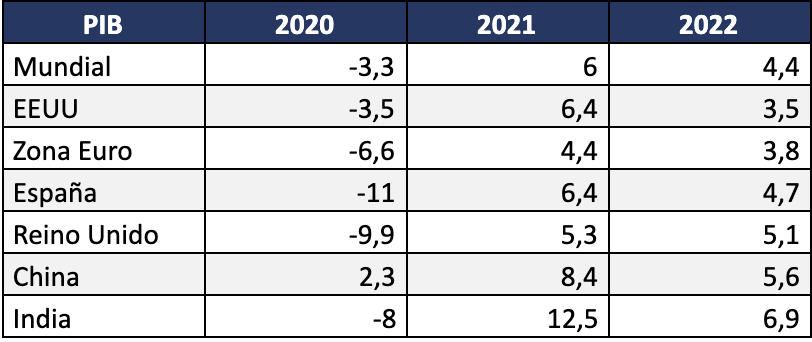Years ago, when the concept “globalization” simply did not exist, we economics students saw macro and microeconomics as two totally different subjects, and companies and self-employed people in their daily activity, did not care exactly what would happen in the rest of the world, with the exception of the price of Petroleum.
But globalization imposed a radical change in mentality, and we were able to verify the truth of the saying: when a butterfly flaps its wings in one part of the world, it can cause a hurricane at the other end of the planet.
To this day, at the beginning of the period that is beginning to be known as postpandemic, there is already a clear intention that the inhabitants of the first world want to quickly recover their consumption habits.
There is a clear expectation of increase in consumption worldwide, which will benefit all sectors of activity, and will even create new ones supported by the introduction of the 5G technology and by the fact that the so-called green transition towards renewable energies is beginning to permeate public and private policies in all countries.
But that palpable expectation of demand growth, which could lead to the Gross Domestic Product of advanced economies were graphically represented with a rounded V, is already being questioned by an important reality: the shortage of raw materials especially copper, steel, and wood, and the undeniable increase in price, he cost of shipping freight, as well as the shortage of labor.
The above entails an inevitable worsening of cProduction costs: (the great enemy of any entrepreneur or self-employed person as they cannot avoid it or pass it on in its entirety to their client).
Thus, a debate arises that generates volatility in the GDP's of any country: the level of prudence with which companies must adjust their production and, therefore, a possible reduction in the stock availability of final products, already indicates that 2022 may tarnish the optimism that we perceive in 2021, as seen in the following table:

The biggest beneficiaries are, without a doubt, the countries that produce raw materials or those that process them..
This is the case of China, which are already storing copper and cobalt so that in the medium term their factories do not come to a standstill when, in a few years, the transition towards renewable energies becomes solid and demand skyrockets even more.
This has a lot to do with the fact that the 60% in German factories are already slowing down their production and delaying deliveries to customers. But China also happens to be the main steel producer in the world, and its main clients: Europe and the US, with significant growth in their demand, are raising their price (since April by 50%) and starting to put a brake on the construction sector.
The The labor shortage not only affects the United Kingdom due to the immigration policies imposed by Brexit (and which until its entry into force provided this country with cheap labor and made it have very efficient production sectors), but also the rest. of Europe.
A faster-than-expected post-pandemic recovery, an increasingly aging population and an active population with a shortage of training in the main job-providing sectors: communications, construction, healthcare and hospitality, hamper this availability of labor. All of this, fueled because the job search is slowed down by the scenario of low salaries, a shortage of professional prospects, along with demanding working conditions.
The uncertainty scenario is evident, but nothing conclusive. Companies and their financial directors will be obliged to be very attentive and informed about “the butterfly that flaps its wings”, to adapt their business plans to the desired search for profitability.




































